START HERE looks at the rise in monkeypox cases and what to watch for
ABC News' Sony Salzman provides an update on the spread of the virus.
Monkeypox cases have been on the rise in the United States and health officials are warning anyone who was exposed to the virus or showing symptoms to get treatment immediately.
As of July 18, there have been over 1,972 confirmed cases in the U.S., according to the U.S. Centers for Disease Control and Prevention.
Some cities, like New York City and Washington, D.C., are seeing long lines outside monkeypox vaccination centers due to a rise in demand.
Sony Salzman of ABC News' Medical Unit spoke to Brad Mielke for the "START HERE" podcast Tuesday and provided an update to the ongoing spread as well as the latest guidance from health officials.
START HERE: Sony, we’ve now got New York City reporting hundreds of cases, Washington, D.C., is actually the highest case count per capita and, in both areas, vaccine giveaways have been swamped. How big of a public health risk is this becoming?
SALZMAN: It's a really crucial time in the monkeypox outbreak because as we ramp up testing, we're realizing just how many cases there are. So, some level setting: There are nearly 1,500 cases that we know of, but experts expect that there are a lot more. And as we have seen this growing awareness of monkeypox, there's been a growing demand for monkeypox vaccine.
And that's where you can see these shocking images of lines in big cities.
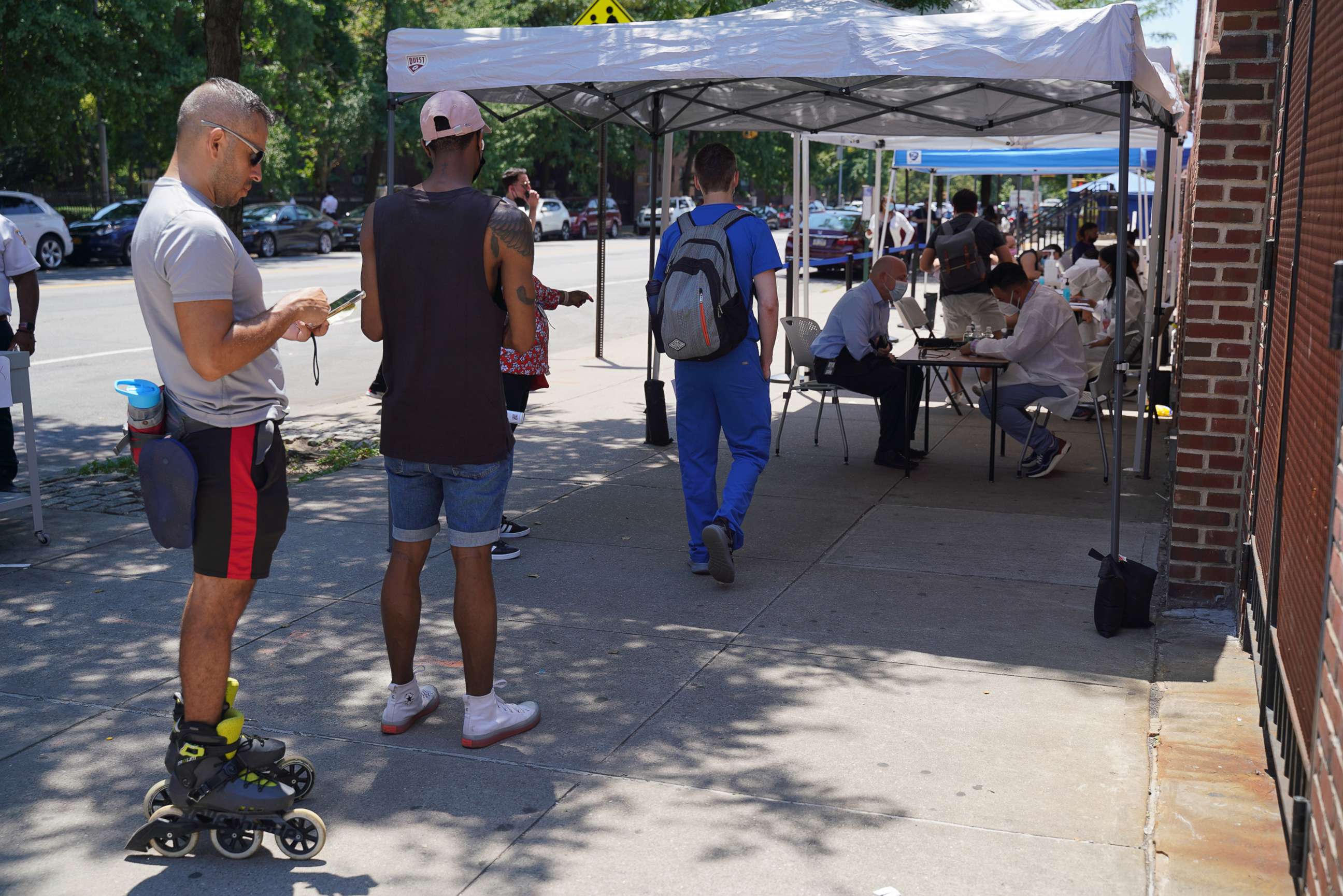
Monkeypox is a virus, and it spreads like many other viruses do. Unlike COVID, it's not really a respiratory virus. You could potentially spread it through droplets, but you'd really have to get up in someone's face. It is mostly spreading through skin-to-skin contact.
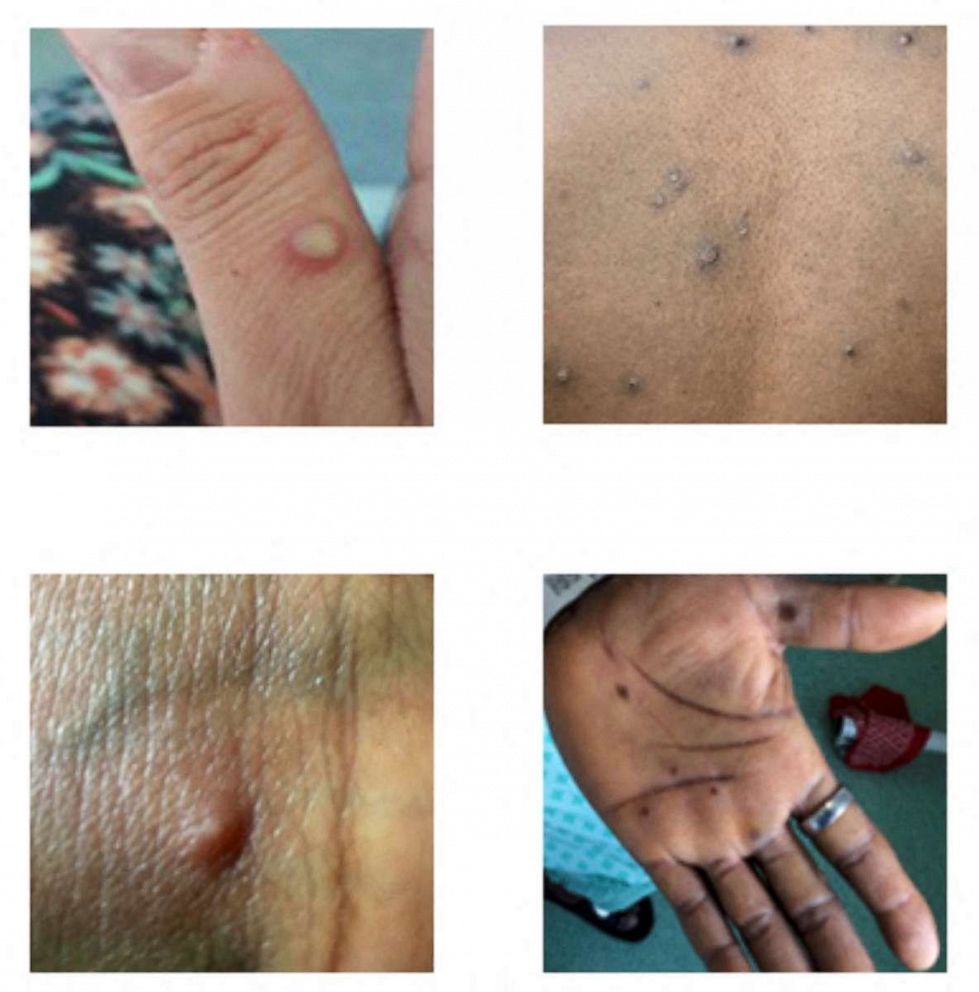
So what monkeypox does is it creates blisters across different parts of your body. And typically someone else gets infected if they touch or [are] somehow exposed to those blisters.
START HERE: And can you talk more about who's getting it? Because it sounds when we see these lines, the vast, vast majority of people who have reported cases, well, over 90% of cases are among men who have sex with men. Right? And then you've got public health officials saying we don't want to make the mistake of singling out a certain group, but you also have members of the public, even in the gay community, saying please treat us like adults and just speak to us in plain English about what you know. So, what do we know? What is the case on transmissibility here?
SALZMAN: Yeah. I think that's a really important point that you just made. Both things are true at once. This is a virus that does not discriminate. It will spread between any two people, but at the same time, because we know it is primarily spreading amongst gay and bisexual men, there is an extra effort to get the word out to those communities.
Now, just to be clear, public health experts are taking extreme caution here because they do not want to repeat the mistakes that were made during the early HIV outbreak in the 1980s. And those mistakes were to stigmatize that virus as something that only affects the gay community. And now we know that HIV affects everyone, including a significant number of heterosexual people every year in the U.S. and globally.
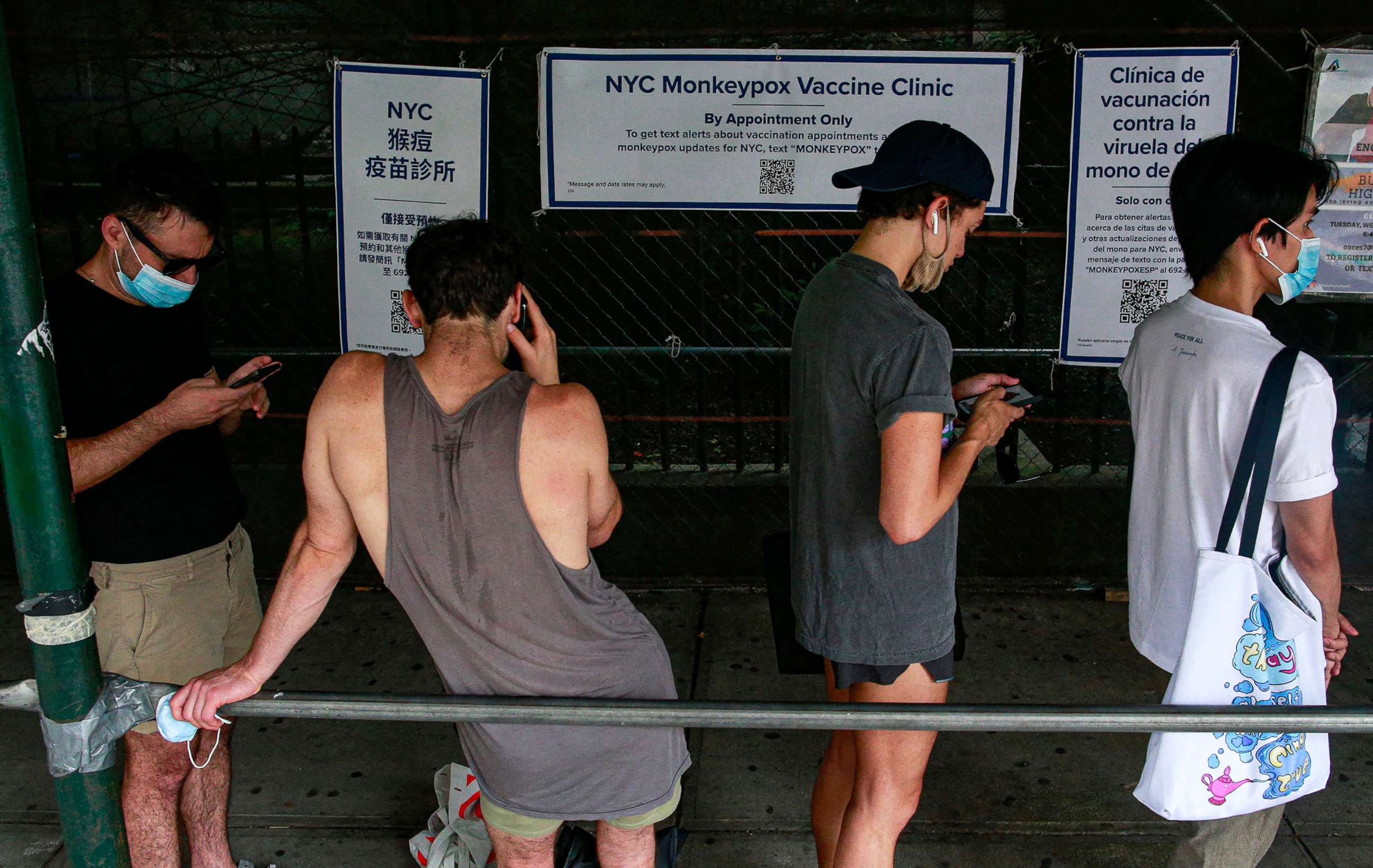
And just because we know that the virus is spreading in this community. Now we think that it's probably likely that it's spreading amongst other people as well. And those people just aren't getting screened and referred for testing. So for people who are listening, if you've been exposed to anyone who may have had monkeypox you will have had to have touched them, been in close contact with them for a significant period of time.
And that's really important for people to be aware of. So if you have an unusual rash that you've never seen before, call your doctor. They might not know about monkeypox. I think that's really important for people to remember as well. Most doctors in the United States will have never seen a case of monkeypox.
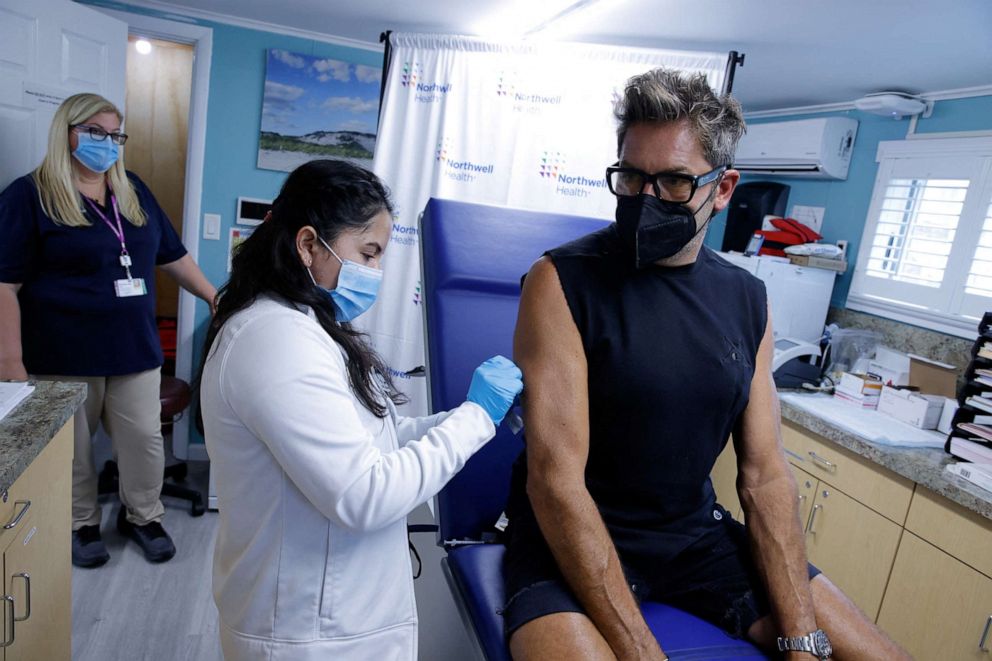
And we've seen so many cases of people taking to social media to express frustration about seeking a test and finding a vaccine. And so, it may take patients who are highly educated to do a little educating themselves. If they encounter doctors who've never heard of this, it can be a frustrating experience for people who feel like they might have these monkeypox symptoms.
START HERE: That's really interesting. What you said about who's getting it, how they're getting it, the lack of knowledge about it in the past. Are there ways to make sure that vaccines or other countermeasures will be available to those who need them?
SALZMAN: There has been some criticism that this has been too slow.
As we've seen, demand is outstripping supply, but testing is ramping up. Now the U.S. has five laboratories that are doing testing with a capacity of about 70,000 tests a week and hoping to continue to ramp up there. And when it comes to the vaccine, there are two vaccines that can be used to treat this one.
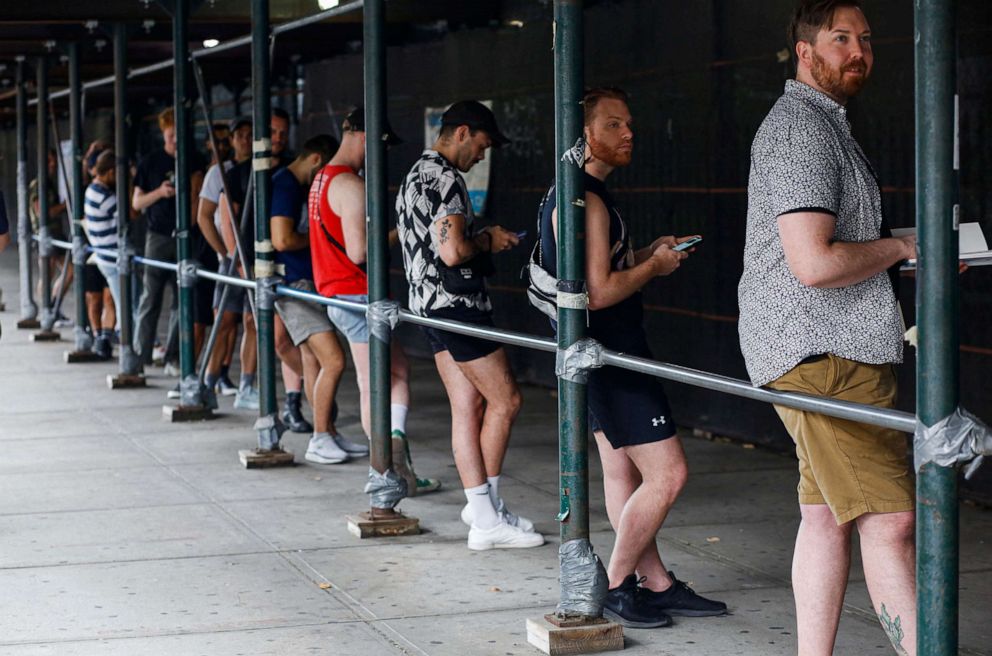
[One] vaccine is called the JYNNEOS vaccine and it is strongly preferred. It is specifically approved for monkeypox and not a closely related cousin smallpox, and it has far fewer side effects. The problem is in the national stockpile, we have way more of that other vaccine right than we do have this preferred JYNNEOS vaccine.
So the U.S. is currently, you know, scrambling to get more of this vaccine. They've released kind of 30,000 doses so far. They hope to obtain 700,000 doses kind of in the coming month, [and] 2.5 [million] doses by next year.
START HERE: So JYNNEOS vaccine, that’s the vaccine that’s been developed specifically for monkeypox. And we should say -- only need it if you’re somebody who’s been exposed or you’re at higher risk of being exposed to monkeypox. Sony Salzman, really helpful as always. Thank you so much.
[
]



